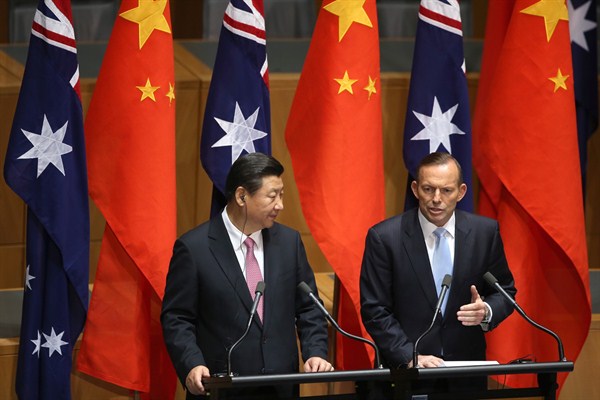Last month, Australia signed a free trade agreement with China, though it has yet to be implemented. Its ninth free trade deal with its neighbors came amid Australia’s active participation in ongoing negotiations over two major trade deals in the Asia-Pacific region, the Trans-Pacific Partnership (TPP) and the Regional Comprehensive Economic Partnership (RCEP). How does all this trade-related bustle fit together? And how much is politics, as much economics, involved?
The current activity reflects a shift in global trade regimes. Australia used to be a strong supporter of multilateral trade, with the World Trade Organization (WTO) at the center of the action. This multilateral format delivered huge benefits in the postwar era, with international trade growing twice as fast as GDP. It has, however, come to the end of the road. For well over a decade, the latest round of WTO trade talks, known as the Doha Round, has struggled to make progress. A weak agreement reached in Bali last year was subsequently nullified when India reneged on the deal. Getting over 160 countries to agree on substantive trade reform is impossible. The WTO still has other valuable tasks to perform, like resolving trade disputes, and it might yet find a different format for trade-enhancing negotiations. But for the moment the action has moved elsewhere—to free trade agreements.
Whether bilateral or plurilateral—involving more than two countries, often in the form of smaller regional pacts like the North American Free Trade Agreement (NAFTA)—free trade agreements should more properly be called preferential trade agreements. After all, their defining characteristic is to give trade preference to treaty participants, discriminating against nonparticipants. These agreements are often popular with industry export lobbies that value the opportunities to gain preferential access to attractive markets. At the same time, however, a country might find itself importing from a participant that is not the cheapest global source of supply.

